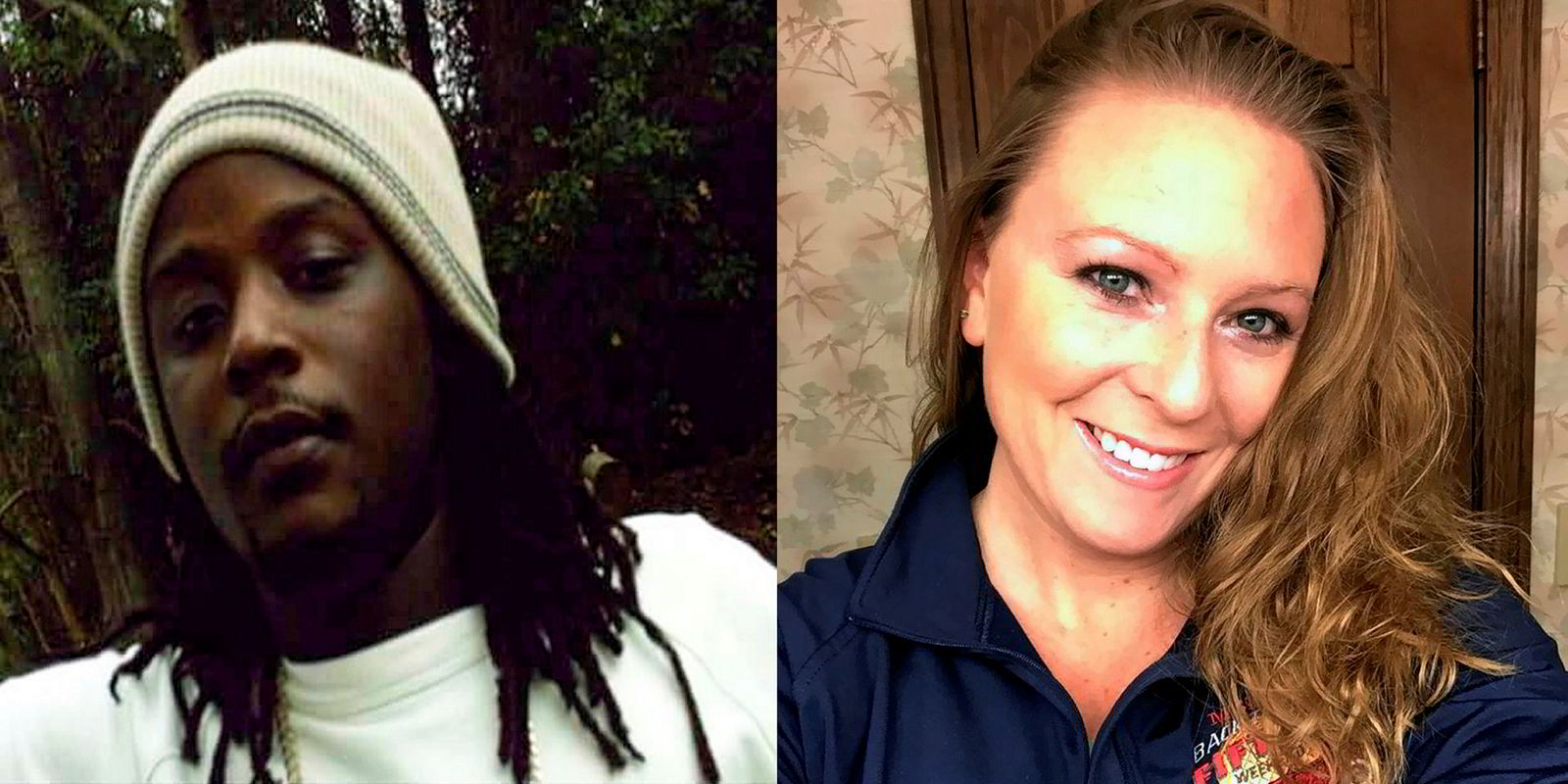Three years after the worst US-flag casualty of modern times, Congress is working to avoid a repeat of the tragedy.
The proposed Marine Safety Act of 2018, which some hope will help spur improvements across the fleet protected by the Jones Act, won the approval of the House of Representatives over the summer. Marine policy experts now expect it to be passed by the Senate and earn the signature of President Donald Trump to become law.
The bill, spearheaded by two members of the House of Representatives, is a direct response to the sinking of TOTE Maritime’s El Faro (built 1975), which took all 33 onboard with it when it went down on 1 October 2015 not far from the eye of Hurricane Joaquin.
The loss of the 5,330-lane-metre combination containership/ro-ro (conro) en route from Jacksonville, Florida, to Puerto Rico sparked deep soul-searching about safety under the Jones Act, the cabotage law that reserves domestic shipping to vessels built in US yards, crewed and owned by Americans and flying the Stars and Stripes. The Jones Act’s barriers to entry have fuelled the criticism of observers who say it allowed a 40-year-old ship to trade on.
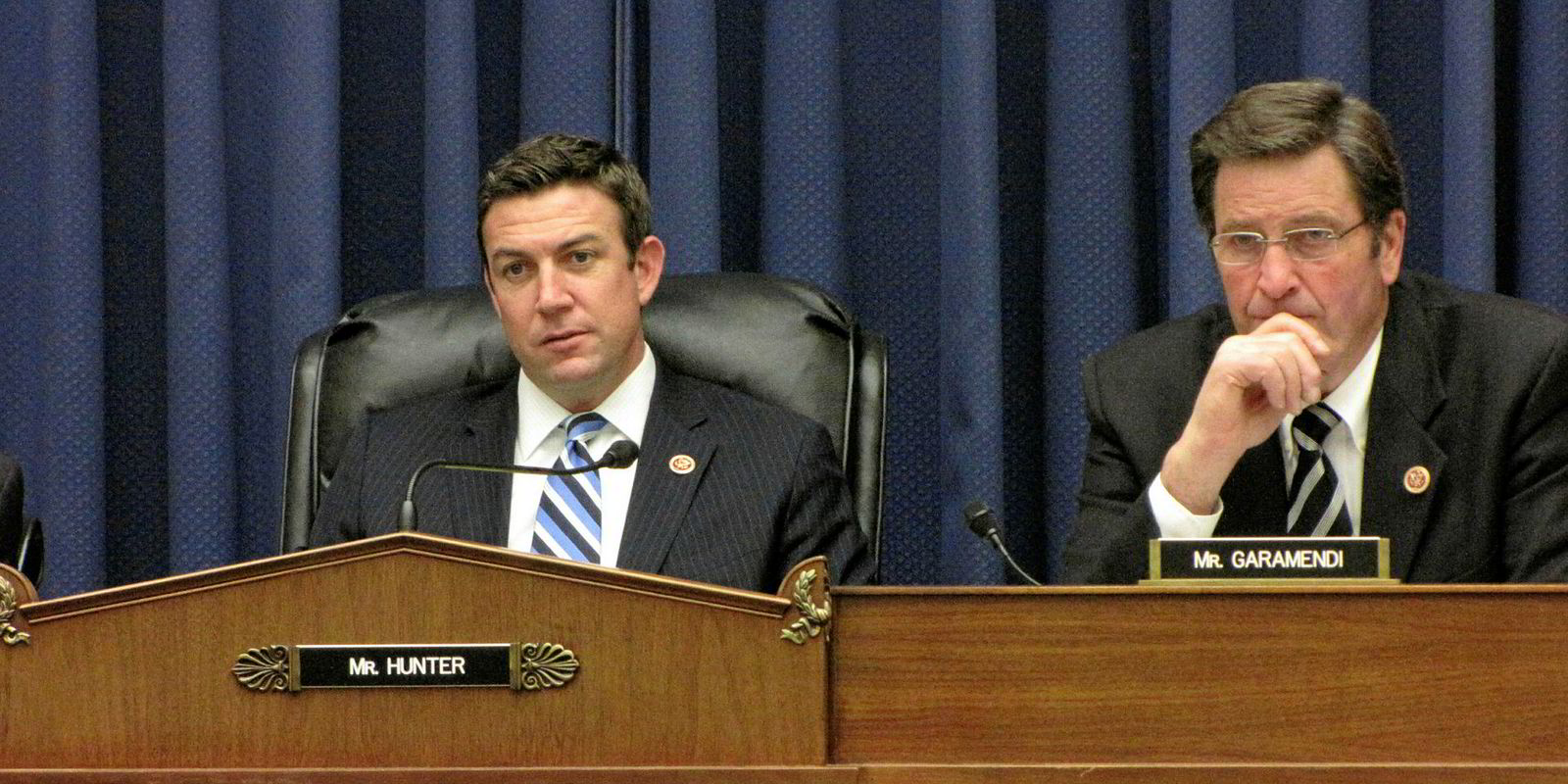
The disaster touched off the most extensive and high-profile US shipping casualty investigation in recent memory. The National Transportation Safety Board (NTSB) and the Coast Guard carried out two separate investigations.
The inquiries’ dozens of recommendations touched on issues from top to bottom of El Faro and its operations, including oversight of the master, structural matters and the continued use of outdated open-type lifeboats on older US-flag ships.
The wording of the marine safety bill hews closely to the recommendations that came out of the Coast Guard’s final report.
But will embedding these recommendations in law make a difference in ensuring that such a catastrophe never happens again?
Clay Maitland, who chairs the Merchant Marine Policy Coalition, in addition to being a managing partner at Marshall Islands flag manager International Registries, believes it will have an impact.
He says lawmakers on the House Coast Guard and Maritime Transportation Subcommittee, where the bill originated, have signalled that they favour more funding to back the safety measures.
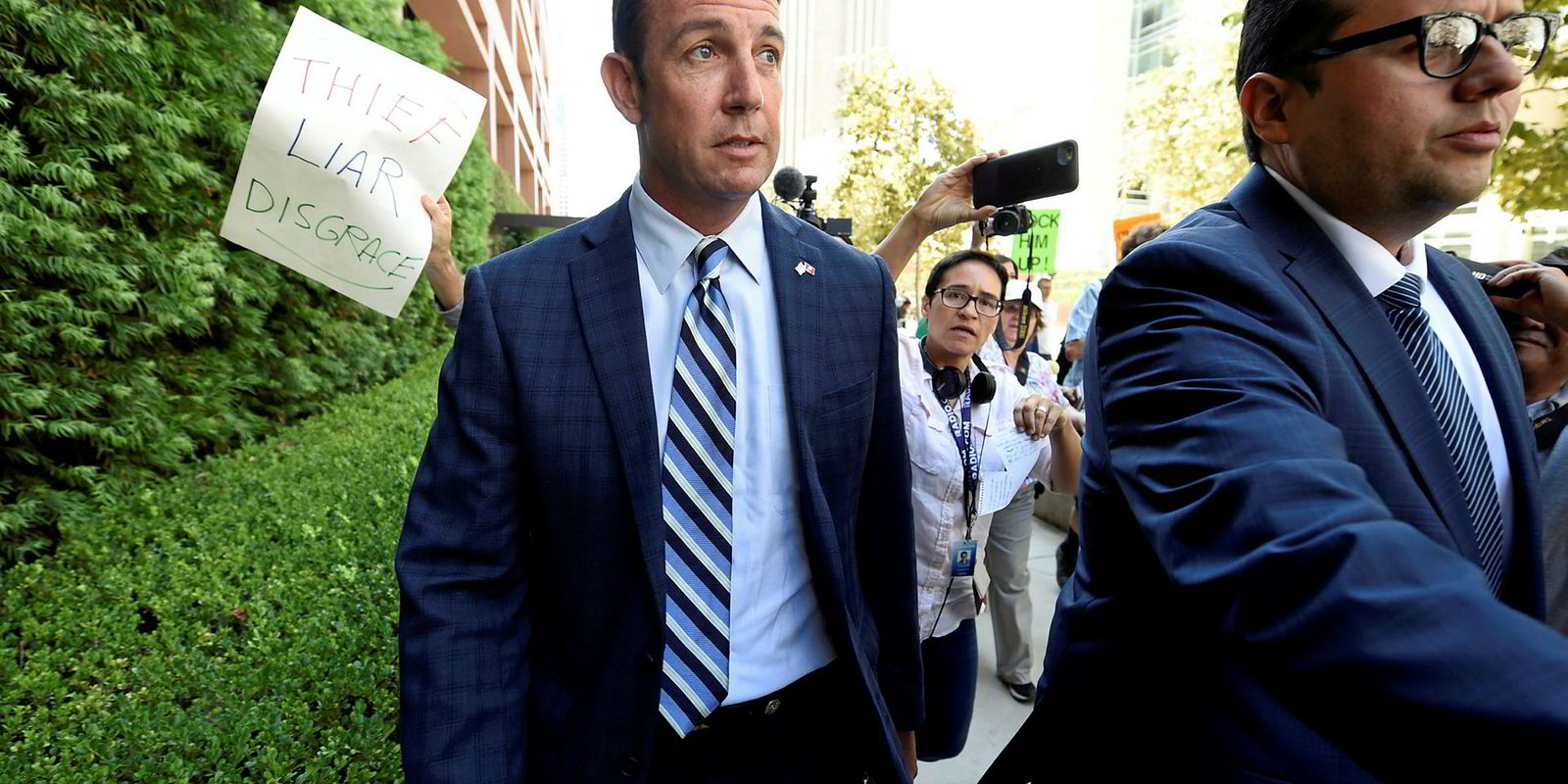
“Very simply stated, Congress is saying the Coast Guard has to spend the money [on marine safety],” Maitland says.
But according to one expert in Washington, shipowners in the US-flag sector expect little impact from recommendations that many believe are not focused on matters that would have prevented the loss of El Faro.
This expert says that at the heart of the tragedy was decision-making by the master, Captain Michael Davidson, who maintained a course that took the ship into the path of the storm,and the legislation won’t stop masters from being in a position to make similar calls in the future.
Others disagree. They contend that the bill, if passed, will put additional scrutiny on shipowners’ application of requirements to have robust safety management systems, and on classification societies to ensure they are complying.
“Owners have got to actually demonstrate that they are spending the money and doing the right things to enforce the safety management systems, so they are overseeing what the skipper is doing,” Maitland says.
And, he adds, the new rules should provide impetus to modernise the Jones Act fleet.
The marine safety bill is a rare product of a partnership between two representatives of California that crosses the political divide.
On the Republican side is Duncan Hunter, who represents parts of the San Diego area, home of shipbuilder General Dynamics Nassco. A Marine Corps veteran who served in Iraq and Afghanistan, he is a big supporter of the Jones Act and was chairman of the House Coast Guard and Maritime Transportation Subcommittee, which developed the bill.
In late August, Hunter handed over the reins to the subcommittee after being indicted on corruption charges related to personal use of campaign funds, but that is not expected to stop the legislation.
“It is concerning, because Representative Hunter is a strong supporter of the US merchant marine, but I don’t believe that it will have a serious effect on the El Faro legislation because that is a consensus measure,” said Charlie Papavizas, a maritime lawyer at Winston & Strawn.
Co-sponsoring is John Garamendi, the ranking Democrat on the subcommittee and a fellow supporter of protection for US shipping.
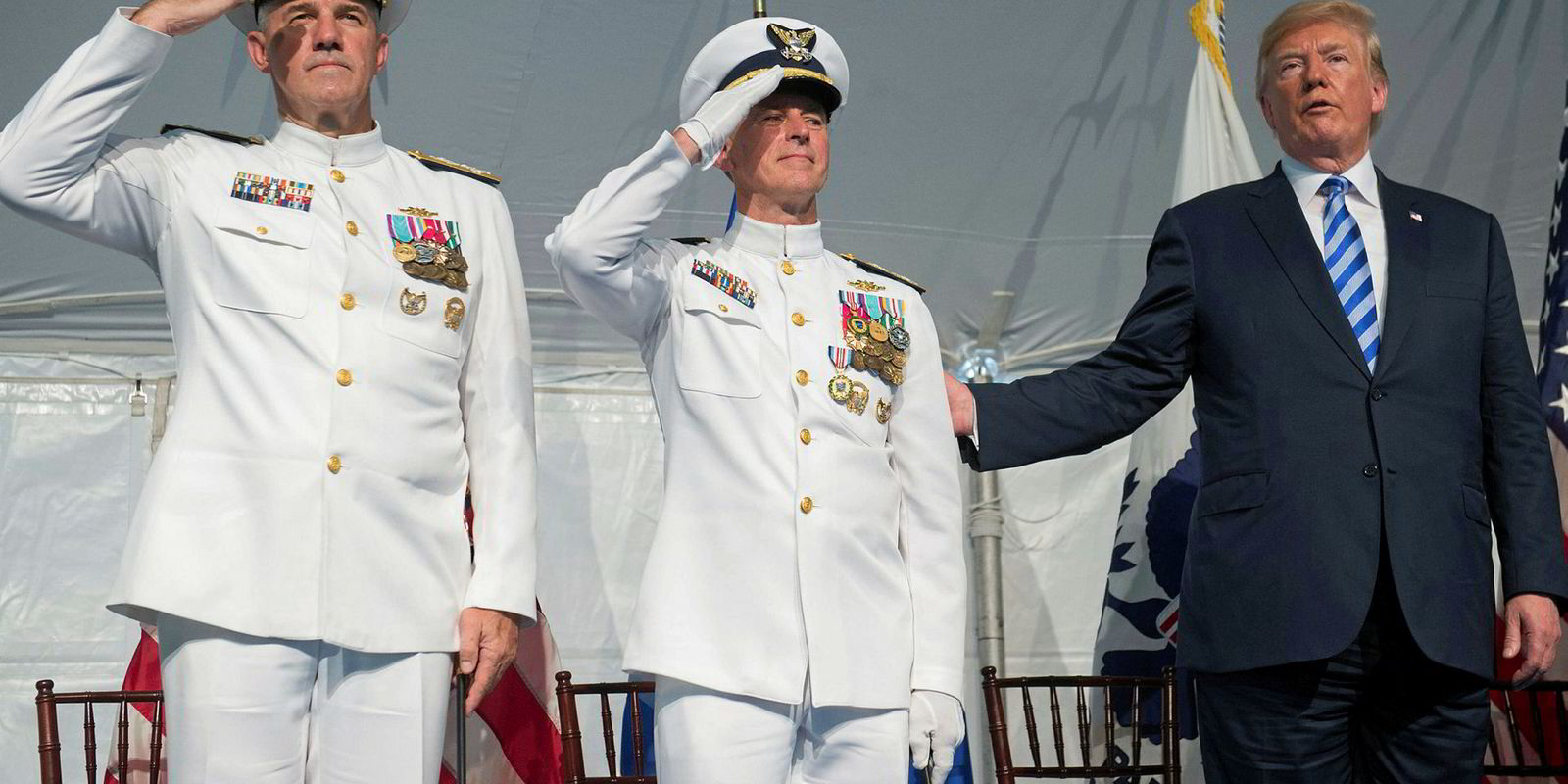
Among its provisions, the El Faro legislation would require an annual public report detailing any instance in which the Coast Guard finds a major nonconformity in a vessel following an inspection by a “recognised organisation” — classification societies and others approved to carry out statutory inspections on its behalf. And it would demand a closer look at these recognised organisations.
The Coast Guard, in its investigation of El Faro’s sinking, expanded the scope of its probe to take a hard look at the programmes that give class societies a significant role in carrying out Coast Guard inspections of US-flag ships.
The bill also calls for a government audit of a representative sample of ship operators’ safety management systems.
If passed, it would require distress beacons for every person onboard a vessel. Shipowners will also have to keep track of all incremental weight changes to vessels.
The legislation aims to ratchet up marine inspection training, and it calls on the Coast Guard to review how it is determined whether work on a ship constitutes a “major conversion”. That factor came into play in the investigations because key upgrades of El Faro might have triggered the need for it to meet more modern safety rules if they had been deemed major conversions.
Among the recommendations in the investigation reports that did not make its way into the bill is the requirement for ships to have fully enclosed lifeboats, even though the Coast Guard inquiry called for legislative action on this.
While newer ships are required to have such lifeboats, the Safety of Life at Sea Convention’s provisions take effect based on build date, so the 40-year-old conro’s open lifeboats were “grandfathered” in, although there is no way of knowing whether different lifeboats would have saved any of the crew.
It is hard to assess how much progress has been made on implementing the Coast Guard’s September 2017 recommendations, or those of the NTSB in February this year.
An action report signed in December by the Coast Guard’s top official, commandant Admiral Paul Zukunft, who retired in June this year, said the transparency of the investigation process had already allowed some vessel operators to respond to the lessons learnt and adapt their operations.
He also said the Coast Guard was committed to addressing some of the failings in its oversight of class societies that were identified in the investigation.
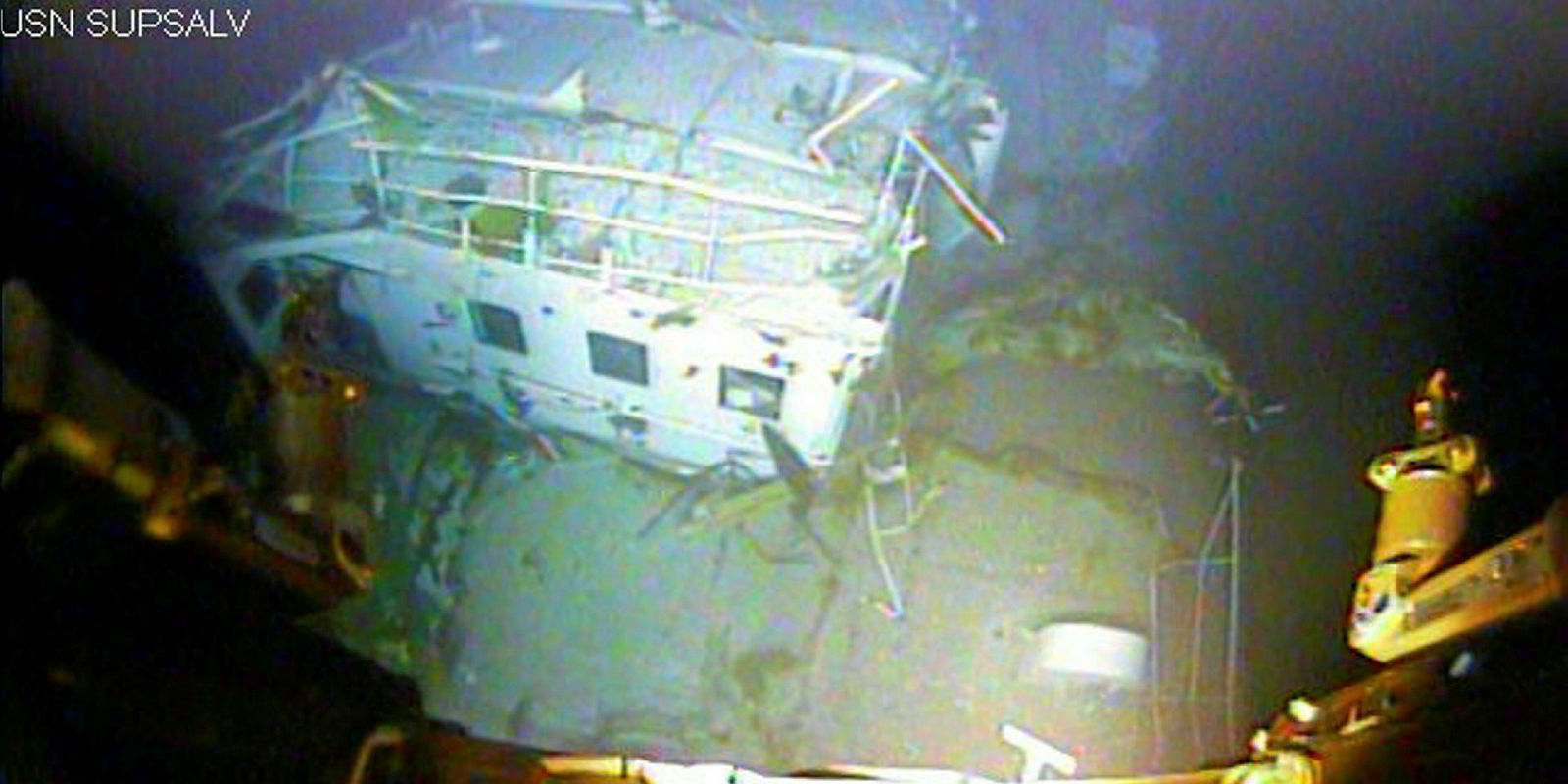
While pointing to decision-making by El Faro’s master as the “most prominent” factor leading up to the casualty, Zukunft highlighted alleged failures by TOTE Maritime’s management division, TOTE Services, to provide sufficient shoreside safety management support. And he described the casualty as a “call for action” for the ship’s classification society, the American Bureau of Shipping (ABS) to do better after the investigations uncovered failures to identify problems.
But he said the Coast Guard must address its own failure to oversee ABS’s inspection role adequately, and now it needs to create a risk-based policy framework.
In the December report, Zukunft said the Coast Guard would take up a variety of policy and regulatory changes called for in the recommendations. He said it should issue new guidance on implementation of ships’ safety management systems, which was apparently provided to the industry in March.
He also said the Coast Guard would suggest to the IMO regulations to improve voyage data recorder rules, and it would carry out a “concentrated inspection campaign” on open lifeboats, although he said requiring closed lifeboats would take legislative action. And the agency would create new policies and training programmes for oversight of surveys by class societies.
Some observers believe legislation could help push the Coast Guard to move further ahead with the measures recommended in the two investigations.
Kyle McAvoy, the retired head of commercial vessel compliance policy for the Coast Guard who is now a marine safety expert at Robson Forensics, says the bill before the Senate can help keep the agency focused on the task amid its wide variety of other missions.
“If left to implement some of these changes without congressional influence, the efforts of the Coast Guard may fall victim to in-house priorities,” says McAvoy, who testified at investigative hearings on the loss of El Faro.

